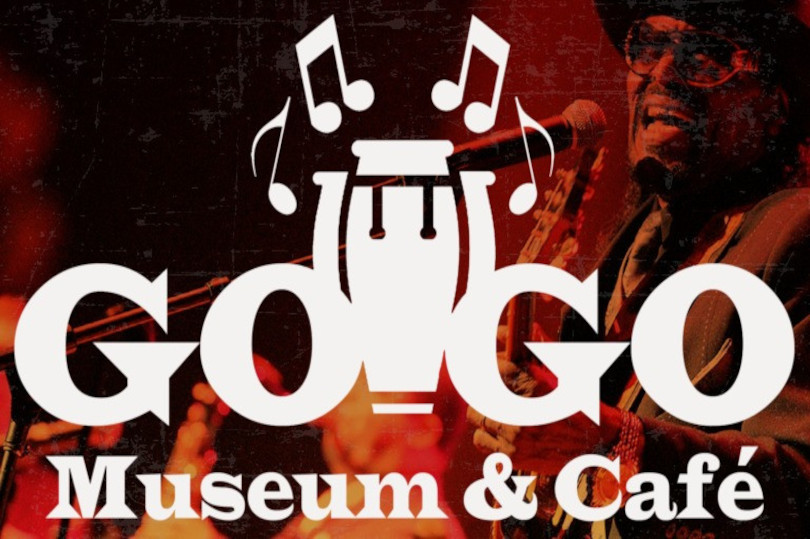The lack of adequate support for the District’s youth has been an ongoing issue. Cutbacks on school programs, and more recently a lack of adequate resources and mismanagement, reflect the neglect prevalent in our community. In response, community leaders like Ward 8 Councilmember Trayon White have visited facilities like the Youth Service Center in Washington, D.C. to get an idea of what the underlying key issues are, and to come up with a plan to address them moving forward.
Similarly, CEO Ronald Moten connects with his community and has helped to create alternative ways of addressing many of the community’s concerns. Moten, co-founder/CEO of Don’t Mute DC and The Go-Go Museum & Café is a D.C. native, tripling as a peace activist, political advisor, and Go-Go promoter. The DC Voice reached out to Moten to get a better understanding of his connection to his initiatives and how he works to address the community’s concerns.
Don’t Mute DC: Creating More Opportunity for Community Growth
Don’t Mute DC became a hashtag back in 2019 in response to a noise complaint made by a resident who lived across the street from the iconic Metro PCS store known for cranking Go-Go. The complaint erupted into much more, sparking an activism movement that has brought on petition signings, more community funding, and support. In a nutshell, Don’t Mute DC – the movement-turned-organization – utilizes the culture and teachings of Go-Go to encourage community acknowledgment and change of the displacement and cultural erasure taking place in the District.
The organization also works to provide community support to the lost youth of the District who resort to violence due to living conditions, lack of access to educational resources, and the lack of knowledge that there is a better way.
Historically, many believe one way to help resolve this issue is through knowledge of self and knowledge of history.
Supporting Community and Creating Pathways for the District’s Youth
When asked about what he thinks should be implemented further, as a way of addressing the lack of youth support around the District, Moten explained “We gotta do something to make sure that young people get back into the community, back into the Go-Go.”
He went on to point out the importance of the youth knowing their culture, and the importance of preserving that culture, “to make sure that the next generations embrace it as well.”
Moten also pointed out that many of the kids seen committing grand theft auto and getting into trouble, in general, have nowhere to go, nothing to do, and no one to intervene.
Moten’s work with Don’t Mute DC has led to public policy development, and progression in the support of District cultural arts and the preservation of it. This has led him to the upcoming ribbon cutting of The Go-Go Museum & Café which will provide a place for the youth to congregate and elevate.
The Go-Go Museum & Café: Providing a Space for Change
Back in 2020, Mayor Bowser signed a bill called the Go-Go Music of the District of Columbia Designation Act of 2019. The bill called for the implementation of a program that supports and archives Go-Go music and its history in the District.
When asked about whether he felt the bill has made any concrete changes Moten had this to say: “Around 2011 the DMV killed Go-Go as it relates to young people, teen spots, all ages. People used to have venues to go to take part in our music and culture, so since the legislation we’ve seen an increase in effort. While there is still more work to be done, there was a 3 million dollar budget that went to archiving Go-Go’s history.”
This funding has led to the creation of the up-and-coming Go-Go Museum & Cafe. Moten shared that the museum and cafe will feature a stage, resembling a tiny desk performance feel, a food court, and an event space for various activities and opportunities for the youth. A few opportunities to anticipate are Go-Go classes where kids can learn about and play Go-Go, enroll in production, recording, photography, and culinary classes, and more.
Ultimately, Moten explained, he wants to create a space for the youth to socialize and thrive in an uplifting environment, rather than an unregulated and unstructured one. The Go-go Museum & Café ribbon cutting took place on November 15, with the goal to be up and running by mid-April. To learn more about the Go-Go Museum & Café and/or to volunteer for the initiative, Moten encourages people to email him at weworddc@gmail.com and to visit www.gogomuseumcafe.com.
Article featured image courtesy of gogomuseumcafe.com.


